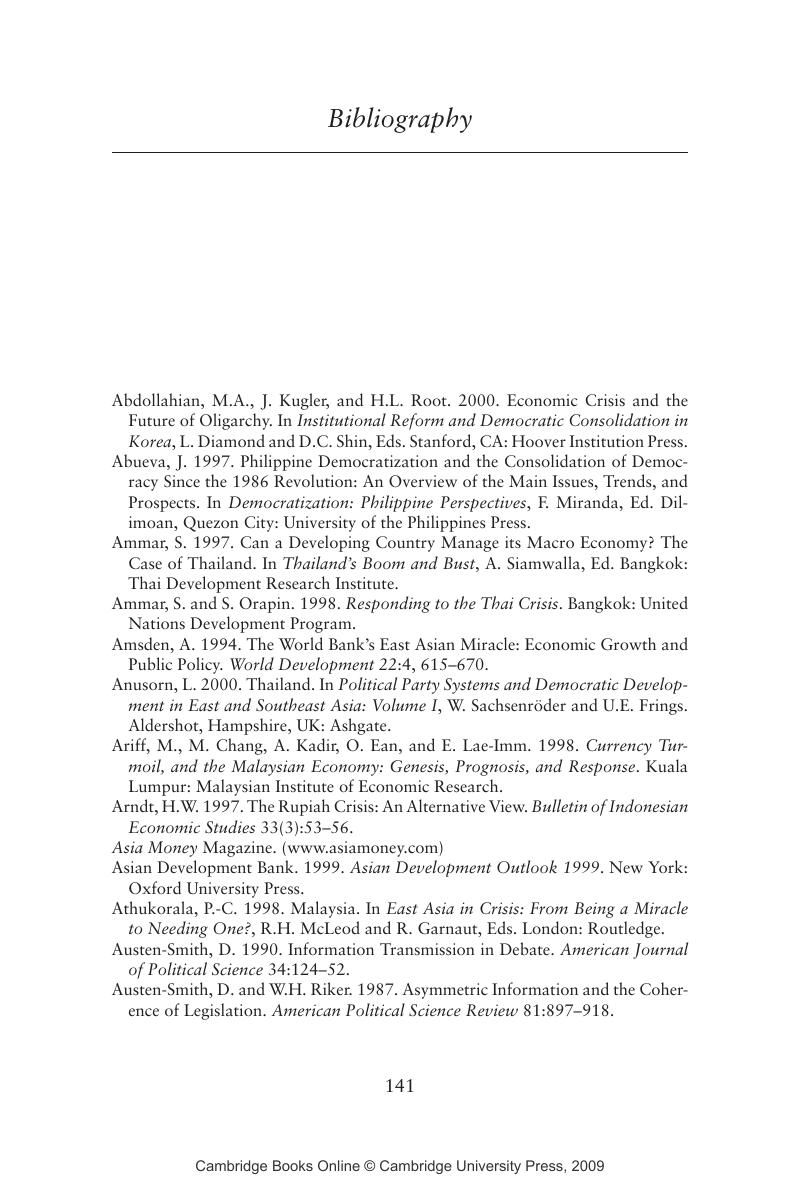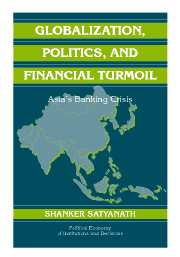Book contents
- Frontmatter
- Contents
- Figures and Tables
- Preface
- GLOBALIZATION, POLITICS, AND FINANCIAL TURMOIL
- 1 Introduction
- 2 Bank Regulation in the Debate over Capital Flow Liberalization
- 3 The Signaling Argument
- 4 Incredible Signaling in Democracies: The Cases of Thailand, South Korea, and the Philippines
- 5 Unorthodox Solutions to the Signaling Problem: The Cases of Malaysia and Indonesia
- 6 Orthodox Solutions to the Signaling Problem: The Cases of Singapore and Hong Kong
- 7 Some Concluding Remarks
- Appendix I The World Bank's Evaluation of Bank Regulatory Environments
- Appendix II Verbal Description of the Equilibrium with Two Signalers
- Appendix III Formal Proof of Equilibrium with Two Signalers
- Bibliography
- Interviews by the Author
- Index
- POLITICAL ECONOMY OF INSTITUTIONS AND DECISIONS
- References
Bibliography
Published online by Cambridge University Press: 24 July 2009
- Frontmatter
- Contents
- Figures and Tables
- Preface
- GLOBALIZATION, POLITICS, AND FINANCIAL TURMOIL
- 1 Introduction
- 2 Bank Regulation in the Debate over Capital Flow Liberalization
- 3 The Signaling Argument
- 4 Incredible Signaling in Democracies: The Cases of Thailand, South Korea, and the Philippines
- 5 Unorthodox Solutions to the Signaling Problem: The Cases of Malaysia and Indonesia
- 6 Orthodox Solutions to the Signaling Problem: The Cases of Singapore and Hong Kong
- 7 Some Concluding Remarks
- Appendix I The World Bank's Evaluation of Bank Regulatory Environments
- Appendix II Verbal Description of the Equilibrium with Two Signalers
- Appendix III Formal Proof of Equilibrium with Two Signalers
- Bibliography
- Interviews by the Author
- Index
- POLITICAL ECONOMY OF INSTITUTIONS AND DECISIONS
- References
Summary

- Type
- Chapter
- Information
- Globalization, Politics, and Financial TurmoilAsia's Banking Crisis, pp. 141 - 152Publisher: Cambridge University PressPrint publication year: 2005



